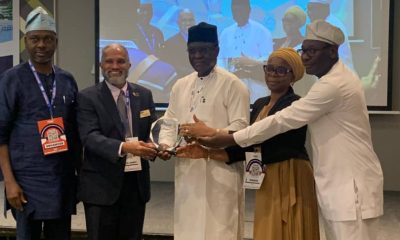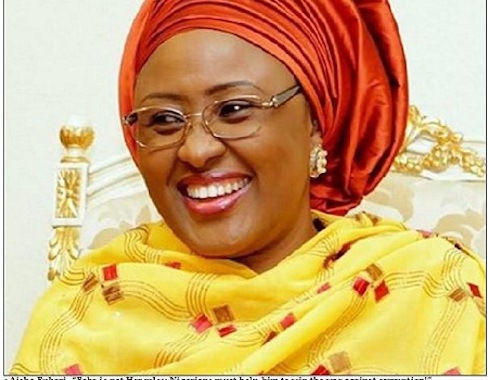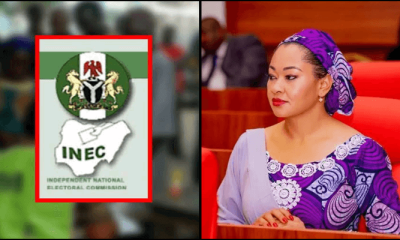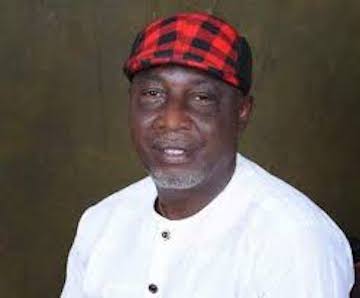Education
ASUU ends Warning Action; may Begin Indefinite Strike
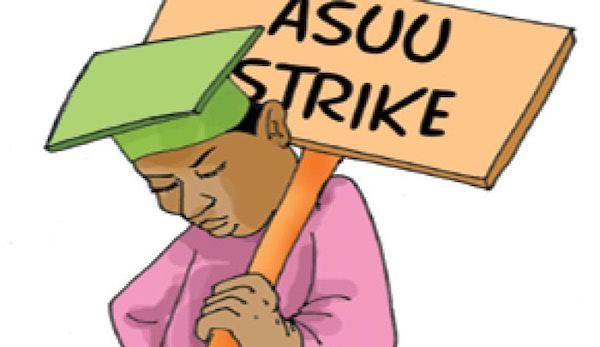
By Adesina Wahab
As the second round of the eight-week warning strike embarked upon by members of the Academic Staff Union of Universities, ASUU, ends on Monday, the union is poised to go on an indefinite industrial action.
Sources said the national leadership of the union would make public its decision on Monday.
It was gathered that the National Executive Committee (NEC) of the union had earlier given the go-ahead to the national leadership to call out members on indefinite strike if nothing tangible was achieved during the eight weeks of their warning strike.
The union had earlier gone on a month warning strike on February 14 this year, and extended it by another eight weeks which comes to an end on Monday, May 9, 2022.
While ASUU was into the second round of its warning strike, other staff unions in the university system also embarked on strike.
The unions are the Senior Staff Association of Nigerian Universities, SSANU, the National Association of Academic Technologists, NAAT, and the Non-Academic Staff Union of Education and Allied Institutions, NASU.
Though the Minister of Labour and Employment, Dr Chris Ngige, had met with the leadership of SSANU, NAAT, and NASU, nothing concrete came out of the meetings.
He is yet to meet with ASUU leadership, though he announced last weekend that he would meet with them.
When contacted, the National President of ASUU, Prof. Emmanuel Osodeke, said the union had not got an invitation from the government’s team as of the weekend.
“We too heard it in the news what the Minister of Labour said about meeting with us, but as we talk, nobody has reached out to us for any meeting. We don’t know when the meeting will be called. However, I think before going to the press to announce any proposed meeting, what ought to have been done is to inform us. Anyway, we are waiting for the meeting when it is called,” he said.
Asked what would be the next line of action, Osodeke said the national leadership of the union would decide that.
Speaking on the situation, the National President of the National Parent Teacher Association of Nigeria, NAPTAN, Alhaji Haruna Danjuma, expressed disgust with the continued closure of the universities.
“We cannot continue to waste the time of our children. They are staying much at home than in school now. It is unfortunate that we are yet to get over the issue of the closure of our higher institutions incessantly. That is a minus for the system. How do we expect foreigners to respect our certificates?
“Incidentally, it is not everybody that can afford to send their children abroad to study. We must make our education sector work and put an end to this rot. We plead with the government and the university workers to find a mid-course and resolve this issue and let academic activities resume in these institutions, ” he said.
In a chat with our correspondent, the National President of the National Association of Nigerian Students, NANS, Comrade Sunday Asefon, said the association would study the situation and react appropriately.
“We already have a plan of action in place regarding our demands for the reopening of the universities without further delay and we are keeping faith with that. However, if the strike is extended after the eight weeks of warning action, we will also react appropriately too.
“Nigeria students have wasted more than enough time at home doing nothing. With this current situation now, students have wasted time that is enough for them to finish a semester. We are tired of things like this,” he said.
Recall that NANS has said it would not allow any political party to hold its presidential convention in Abuja unless the universities are reopened.
The All Progressives Congress, APC, and the Peoples Democratic Party, PDP, among other parties have fixed their conventions for Abuja.
ASUU has been on strike since February 14 this year, while non-teaching staff unions have also embarked on industrial action over a month ago.
Students from various tertiary institutions have been on street protests in Ibadan, Benin, Abuja and Lagos calling for an end to the strike and for universities to reopen. (Vanguard)
Education
UNICAL VC Promises to Resolve Dentistry Students’ Crisis

From Ene Asuquo, Calabar
The Vice Chancellor of the University of Calabar, Prof. Florence Obi has promised that she would do everything humanly possible to ensure that the ongoing crisis in the institution’s Department of Dentistry, is resolved.
Prof.
Obi made the promise in Calabar during a press briefing, stressing that she will resolve the crisis before leaving office.She explained that the problem predates her administration, and pledged to intensify efforts to rectify the crisis.
She added that the crisis was as a result of the Medical and Dental Council of Nigeria (MDCN)’s refusal to induct 2016 Dentistry students of the institution.She also debunked claims circulating on social media that the institution’s Dentistry programme has lost its accreditation, describing the reports as “misinformation and distortion of facts,” clarifying that the programme remains fully accredited and no students have been directed to transfer to other universities.
“At no point did the University ask Dentistry students to seek transfers to other institutions, nor were they advised to ‘go and learn a trade’ as falsely alleged online,” the VC stated.
“I will feel very bad if I leave without solving this problem and the students are left hanging without knowing their fate. I won’t be fulfilled,” she said.
She reaffirmed the University’s commitment to ensuring all Dentistry students graduate and are duly licensed as dental surgeons.
She noted that the Dentistry programme commenced in the 2013/2014 academic session, and in November 2019, the University secured pre-clinical accreditation from the MDCN and full clinical accreditation was subsequently granted in December 2022.
The VC added that the university’s synergy and partnership with the Minister of Education and the Tertiary Education Trust Fund (TETFund) to upgrade its facilities.
“All we asked for is time to engage with other institutions, update the Medical and Dental Council of Nigeria (MDCN), and follow through on due processes,” she noted.
Speaking further, Obi said that some of the affected students demanded to be transferred to the Department of Medicine and Surgery but said it was not the solution as the department was already saturated.
She urged the affected students to remain calm, noting that the university was doing everything possible to resolve the issues before the end of her tenure.
Education
NUT Reaffirms Commitment to Teachers’ Professional Development in Kwara
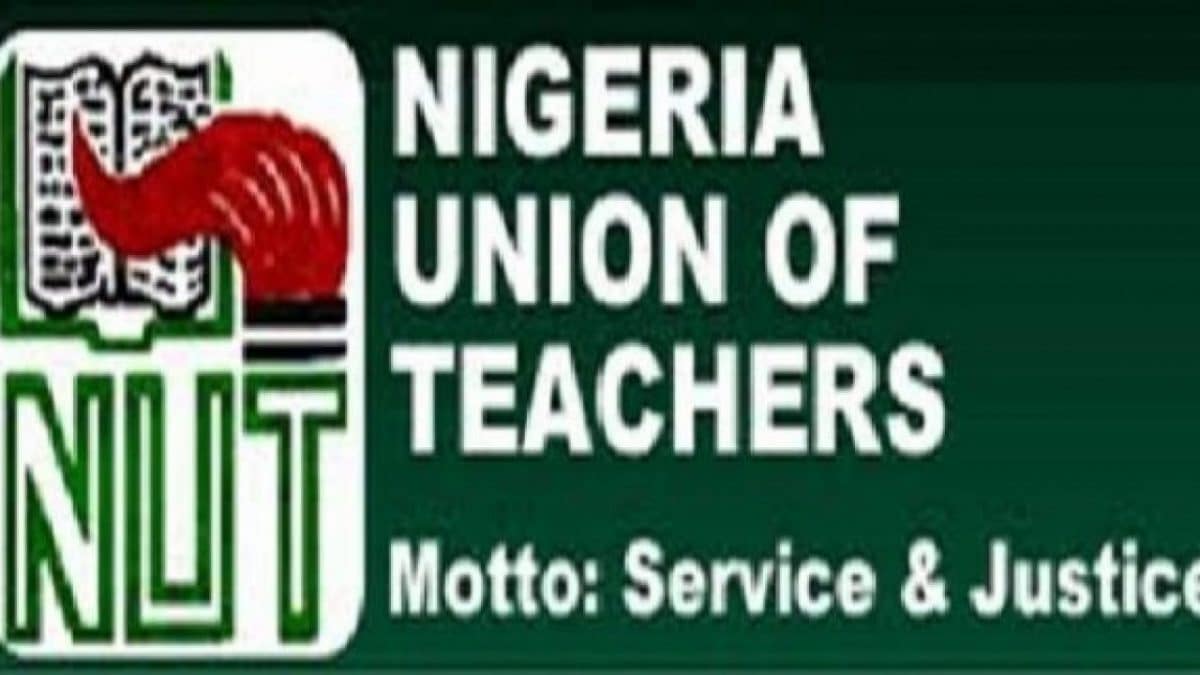
From Abdullahi Abubakar, Ilorin
The Nigeria Union of Teachers (NUT), Kwara State Wing has restated its commitment to strengthening the professional growth of teachers across the State, to enhance the quality of education delivered in public schools. Speaking at the opening of a three-day capacity-building workshop in Ilorin, the State Chairman of the Union, Comrade Yusuf Wahab Agboola, noted that continuous training of teachers remains a vital component of educational reform and improved classroom delivery.
The training, organised in collaboration with the NUT National Secretariat, is targeted at selected teachers and focuses on the “Study Circle Conveners’ Model”—a grassroots strategy for enhancing peer-to-peer learning and participatory leadership within the education sector.
Comrade Agboola explained that the workshop aims to equip teachers with practical skills in collaborative learning, peer engagement, and innovative teaching practices. He expressed optimism that the training would promote professional bonding among teachers and foster collective solutions to challenges facing the education sector.Also speaking at the event, the National Coordinator of the NUT Study Circle Project, Comrade Solomon Igbelowowa, traced the initiative’s roots to 1985 when it was introduced in Nigeria by the Swedish Teachers Association, having recorded success in Sweden and other parts of the world. He commended the Nigerian Union of Teachers for sustaining the project over the years and urged participants to engage fully and make the most of the training opportunity.
The workshop was officially declared open by the National President of the NUT, Audu Amba, who was represented by the 3rd National Vice President, Bashir Oyewo.
He encouraged teachers to approach the sessions with dedication and punctuality.
Education
JAMB Sets 150 Cut-off Mark for University Admissions

By Tony Obiechina Abuja
The Joint Admissions and Matriculation Board (JAMB) has fixed 150 as the minimum cut-off mark for admission into Nigerian universities for the 2025/2026 academic session.
The decision was reached on Tuesday during the 2025 Policy Meeting on Admissions, held at the Bola Ahmed Tinubu International Conference Centre in Abuja, with stakeholders from various tertiary institutions in attendance.
According to JAMB, 140 was approved as the minimum score for colleges of nursing sciences, while polytechnics, colleges of education, and colleges of agriculture will admit candidates with a minimum score of 100.
“The minimum admissible scores for admissions for the next academic session have been fixed at 150 for universities, 100 for polytechnics, 100 for colleges of education, and 140 for colleges of nursing sciences by the stakeholders (Heads of Tertiary Institutions),” JAMB announced via its official X account.









